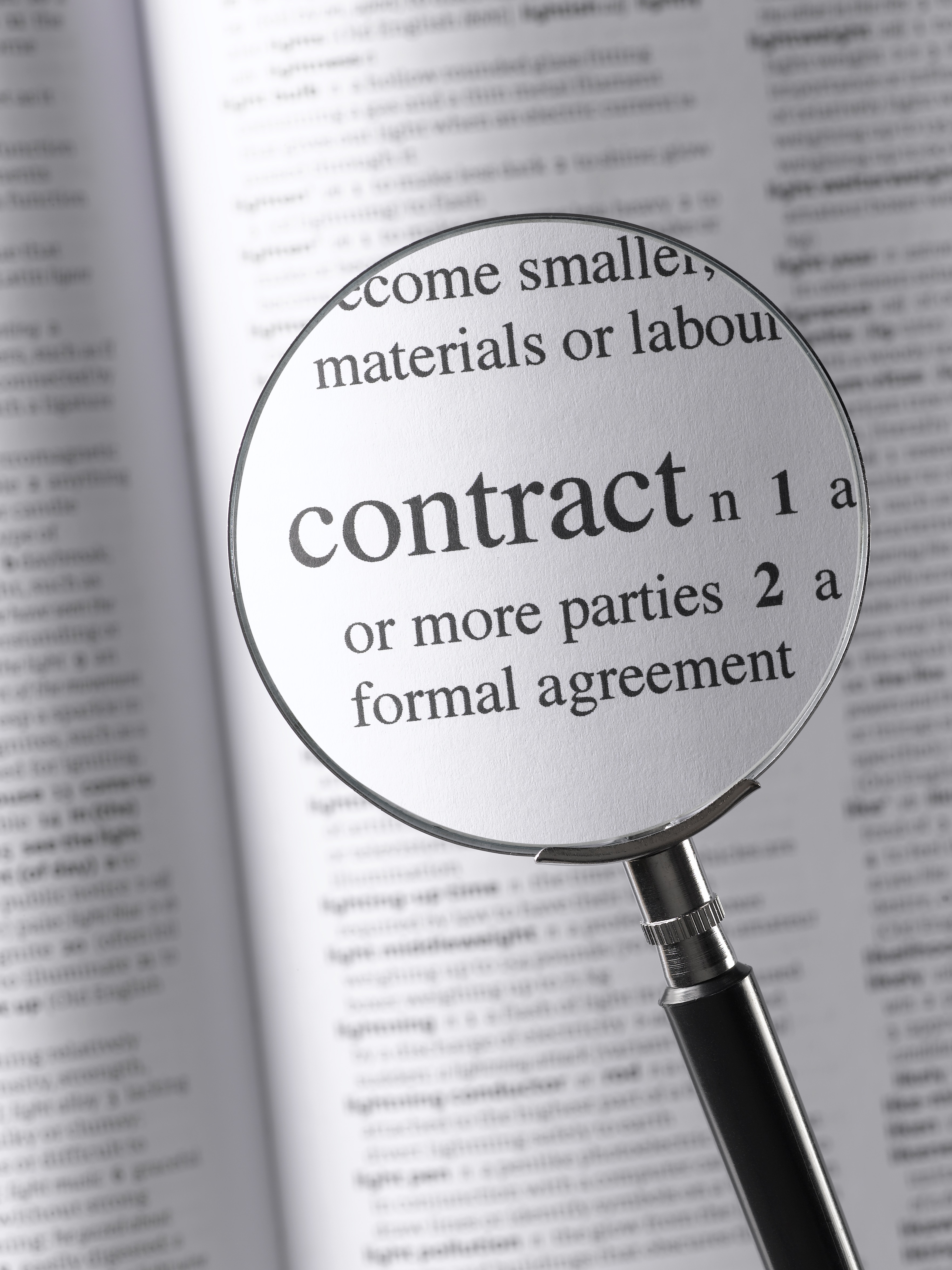A: As a schedule to a franchise disclosure document, which you will have 14 days to review, you will receive a franchise agreement from the franchisor. Before you sign this agreement, it is vital that you understand what it contains. This article outlines the key features of franchise agreements. There are others, but the ones shown here are the majority.
System and Trademark(s) – The franchisor’s system should be “proven,” meaning be well established, with a number of established franchises operating successfully. The franchisor should have its trademark(s) registered in Canada. There are two basic types of trademarks – “word” and “design” (or logo). The franchisor’s trademark(s) should have a high degree of goodwill attached to them, which will assist franchisees in finding success. If the franchisor only has trademark(s) that are “pending” for registration and which are not later accepted for registration, then it will reserve the right to substitute other trademark(s).
Tenure – There will be a fixed term and a renewal term in the agreement, often 10 years each, but sometimes less. A franchisor may want a shorter term so it may impose renewal conditions (see below) sooner, whereas a franchisee may want the longer term for the opposite reason.
Renewal Conditions – Upon renewal, the franchisee will be required to pay a renewal fee, to sign the franchisor’s updated (“then current”) franchise agreement, and to make renovations to the franchised premises so they comply with the current standards for new franchises.
Training Program and Ongoing Support – A schedule of classes/sessions and a place and costs for training will be provided. The franchisor will often require additional training later, particularly when material changes to the franchise system are being made. The franchisor should specifically agree to provide ongoing support to its franchisees by way of inspections of operations and consultations by telephone and intranet, and perhaps instructional webinars.
Fees – There will be an initial fee payable, plus a continuing royalty and a second royalty for advertising. The initial fee will vary, often between $25,000 and $60,000, whereas the continuing royalty will usually be five per cent, but might be higher. The advertising fee will typically be two to three per cent. These are percentages that will apply to the franchisee’s monthly “gross sales.”
Location, Lease, and Protected Territory – The franchisor must designate or approve the franchised location to be established by the franchisee, along with the approval of the lease of that location. The franchisor will normally provide a protected territory or radius around the franchised location within which the franchisor will agree not to grant another, competing franchise. The franchisee will lease from a third party unless the franchisor elects to take a head lease and then sublet to the franchisee. The franchisor must approve the form of lease to be used unless it is providing its own sublease. The length of the initial term and renewal term of the lease or sub-lease must match those of the franchise agreement.
Initial Capital Costs – These will be borne by the franchisee and will cover construction or renovation of the franchised premises. The franchisor will provide draft plans and specifications, which must be followed by the franchisee’s architect.
Controls – The franchisee will be required to follow the training program and the franchise system in accordance with a manual provided by the franchisor, as well as ongoing directions provided by the franchisor. Failure to follow these will constitute a default for which the franchisor may terminate the franchise agreement.
Advertising Program and Websites – An established franchisor will have an advertising program and a website for its system that are accessible to the public. Also, the franchisee will usually be given a “sub-site” for its location by which the public can contact it, and often an “intranet” for private communications between the franchisor and all franchisees.
Potential Early Termination – The franchisor may terminate the franchise agreement if the franchisee commits any one of many specified defaults; for example, failure to pay any royalty, competing with the franchise system, or “under-reporting” any gross sales (and therefore underpaying royalties).
Security – Often, the franchisee will be required to grant a general security agreement or an inventory security agreement (where the franchisor is a major supplier) which will be registered in the local personal property registry and will be enforceable by the franchisor on a default.
Minimum Performance Requirement – The franchise agreement may provide a minimum dollar amount or “quota” of gross sales which must be attained each year. Failure to meet any annual quota will entitle the franchisor to terminate the franchise agreement.
Confidentiality and Non-Competition – The franchisee will be required to keep confidential the franchisor’s proprietary information, including the contents of the manual, and will agree not to compete with the franchise system during the term and for a number of years (often two) after the franchise agreement expires or is sooner terminated.
Supplies – The franchisee will be required to purchase supplies from the franchisor and/or third party suppliers.
Assignment and Right of First Refusal – The franchisee will be required to meet specified conditions if it wishes to sell and assign its franchise agreement or shares to a third party. An assignment fee will be payable and conditions for the proposed assignee similar to those for a renewal must be met. The franchisor may be given a right of first refusal whereby it may purchase based on terms offered by the third party.
This outline is not to be taken as legal advice by the author. Legal advice in any particular situation would only be provided once an engagement letter with him is signed.
John L. Rogers
Senior Franchise Lawyer
Likewise Law
john@likewise.law

